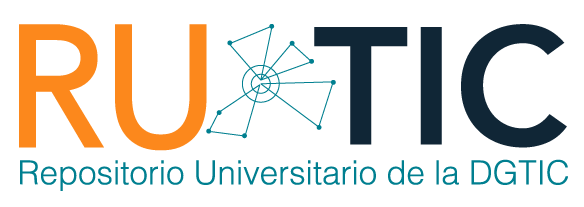| dc.contributor.editor | ERNESTO PRIANI SAISO | |
| dc.coverage.spatial | MX | |
| dc.date.accessioned | 2018-06-28T04:26:05Z | |
| dc.date.available | 2018-06-28T04:26:05Z | |
| dc.date.issued | 2006-06-10 | |
| dc.identifier.uri | https://ru.tic.unam.mx/handle/123456789/1096 | |
| dc.description | Artículos | |
| dc.description.abstract | Este artículo es una aproximación descriptiva a la génesis de las ciencias de la comunicación, para comprender el actual momento histórico. De acuerdo a los teóricos de la comunicación, en Latinoamérica las ciencias de la comunicación han transitado por dos caminos: los procesos funcionalistas-estructuralistas (dictado por las hegemonías europeas y norteamericanas) y la postura beligerante y de denuncia, inspirados en la semiótica, el imperialismo cultural y la dependencia. Pero tras la caída de las “utopías”, el continente ha dado un vuelco hacia si mismo y a través de sus dispositivos tecnológicos, de la comprensión de sus códigos, sentimientos y saberes propios, se construye paradigmas que ponderan al individuo (receptor) como alguien activo y crítico | es_MX |
| dc.description.abstract | This article is a descriptive approach to the genesis of sciences of the communication, to include/ understand the present historical moment. According to the theoreticians of the communication, in Latin America sciences of the communication have journeyed two ways: the one that mediates them makes functionalism- structuralism processes (dictated by the European and North American hegemonies) and the belligerent position and of denunciation, inspired by the semiology, cultural imperialism and the dependency. But after the fall of the “utopys”, the continent has given an upset towards if same and through its technological devices, of the understanding of his codes, own feelings and knowledges, it is constructed paradigms of active reception that weigh to the individual (receiving) like somebody assets and critic | en |
| dc.format | html | |
| dc.format | application/pdf | |
| dc.format.extent | 104.5 kb | |
| dc.format.extent | 243 Kb | |
| dc.language | spa | |
| dc.publisher | Universidad Nacional Autónoma de México. Dirección General de Cómputo y de Tecnologías de Información y Comunicación. Revista Digital Universitaria | |
| dc.relation.isformatof | http://www.revista.unam.mx/vol.7/num6/art51/jun_art51.pdf | |
| dc.relation.ispartof | http://www.revista.unam.mx/index_jun06.html | |
| dc.rights | openAccess | |
| dc.source | Revista Digital Universitaria (1607 - 6079). Vol. 7, No.6 (2006) | |
| dc.subject | Ciencia de la comunicación | |
| dc.subject | Latinoamérica | |
| dc.title | Los retos de las teorías de la comunicación en el siglo XXI | es_MX |
| dc.title.alternative | Challenges of the theories of the communications in century XXI | en |
| dc.type | article | en |
| dc.contributor.director | Alejandro Pisanty | |
| dc.subject.keywords | Ciencias de la comunicación, Latinoamérica, recepción activa, receptor, mensaje. | |
| dc.identifier.url | http://www.revista.unam.mx/vol.7/num6/art51/int51.htm | |
| dc.creator | Marisol Velarde Tova | |
| dc.rights.url | http://creativecommons.org/licenses/by-nc-sa/4.0 |
Files in this item
This item appears in the following Collection(s)
COMPARTE
BÚSQUEDA
Escriba el texto a buscar en DSpace
CONTACTO
El Repositorio Universitario de la DGTIC se edita en la Dirección General de Cómputo y
de Tecnologías de Información y Comunicación (DGTIC), de la Universidad Nacional Autónoma de México (UNAM)
Circuito Exterior s/n, Ciudad Universitaria, Coyoacán, C.P. 04510, México, D.F
Tel: +(52) (55) 56228166 Email: rutic@unam.mx









 ¿Qué es un repositorio...?
¿Qué es un repositorio...? ¿Qué beneficios obtengo...?
¿Qué beneficios obtengo...? ¿Qué tipo de recursos...?
¿Qué tipo de recursos...? Preguntas frecuentes
Preguntas frecuentes